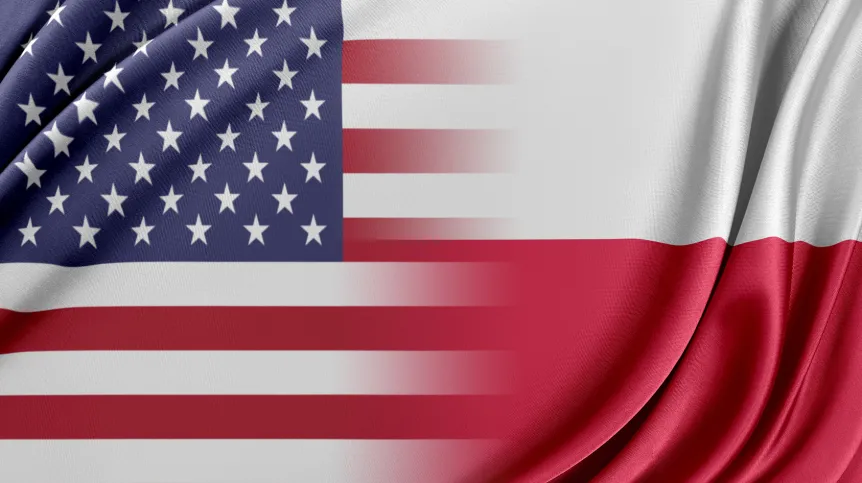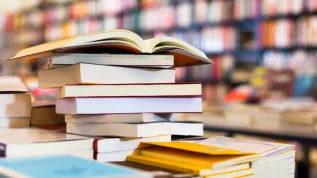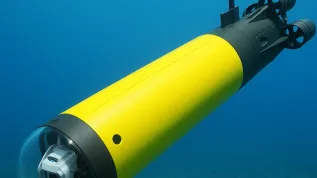
Polish scientists have been collaborating with American researchers for years; in the past year, Polish universities and scientific institutions have intensified their cooperation with their American counterparts. This is due, among other things, to Poland's involvement in the conflict in Ukraine, experts believe.
According to information the Polish Press Agency received from Polish universities and scientific institutions, the past 12 months have been particularly intensive in terms of collaboration.
“In the past year, Polish universities have intensified their cooperation with their American counterparts,” said Professor Jerzy Lis, the chairman of the International Cooperation Committee of the Conference of Rectors of Academic Schools in Poland (CRASP) and the Rector of AGH University of Science and Technology in Kraków.
“It is evident that universities in the United States have started to take more interest in Polish universities, which may also be related to the positive response in America to Poland's aid for war-torn Ukraine,” he added.
He pointed out that universities in the United States are not affiliated with an American counterpart of Polish CRASP, which is why all cooperation agreements are individually signed between universities in Poland and those in the United States. He said: “We are cooperating based on individual bilateral agreements, the number of which is growing.”
He added that Polish diaspora organizations in the US are becoming more involved in cooperation with Polish universities.
Dawid Kostecki, director of the Polish National Agency for Academic Exchange (NAWA), said: “For several years, the United States has been a very important partner in the area of higher education. One of the priority groups for the National Agency for Academic Exchange is the Polish diaspora. Therefore, we have intensified promotional activities in this area. (...) This has resulted in an increased number of people interested in studying in Poland, as well as in scientific, academic, and research cooperation in the area of higher education.”
According to the information provided by NAWA's press office, the agency “considers the United States as one of the priority areas of activity.” NAWA organizes the Polonia Meetings (fairs that allow Polish universities to present their offer to potential students from the Polish diaspora) and a scholarship programme for the Polish diaspora - Anders NAWA.
Foreign Cooperation Director at the Polish Academy of Sciences, Dr. Anna Plater-Zyberk, emphasised that the cooperation between PAN and the US is focused on relations with the National Academy of Sciences (NAS).
She said: “Very close cooperation has been ongoing for many years. Recently, it has intensified due to the war in Ukraine. Since the Russian invasion of Ukraine, NAS has joined forces with us and provided financial support for aid programs for Ukrainian scientists, launched in March 2022."
In 2022, this support amounted to $800,000.
The Polish Academy of Sciences continues to collaborate with NAS to support Ukrainian scientists. In 2023, in a new NAS programme, the US academy has collected and will provide $5 million from its sponsors to research teams in Ukraine. The leaders of the teams will work in a selected Polish Academy of Sciences institute in Poland.
Dr. Plater-Zyberk added that the Polish Academy of Sciences collaborates with researchers in the USA in all fields of basic sciences - from humanities and social sciences to natural, medical, and technical sciences.
She said: “Among the research this cooperation currently focuses on, migration studies stand out in the humanities, while in life sciences it is research on polar studies and climate change, and in science it is quantum physics, which is a Polish specialty, appreciated worldwide, also in the US.”
Typically, cooperation begins with the exchange of researchers and study visits, followed by joint projects that culminate in the writing of scientific papers, Plater-Zyberk explains.
The Polish National Science Centre (NCN) also supports cooperation between Polish and American scientists.
Anna Korzekwa-Józefowicz, the NCN's chief specialist for media contacts and promotion, said: “So far, scientists who have received funding from the NCN have indicated grassroots cooperation with entities in the US in a total of 1241 projects. This is the state as of June 2022. (...) Mathematics and physics are the fields in which the largest portion of NCN-funded projects include cooperation with the US.”
The Polish-U.S. Fulbright Commission also supports scientific exchange between the US and Poland. It is the largest scientific and cultural exchange programme of the United States, operating in over 160 countries. Poland was the first Eastern European country to join the program in 1959.
According to the Commission: “The Fulbright Program in Poland operates in both directions: thanks to the support of the governments of Poland and the United States, we finance scientific trips of Polish students, researchers, and academics to the US and support their promising projects, and American students, researchers, and experts have the opportunity to come for a scientific stay in Poland.”
Every year, about 45 people travel to the USA as part of the Fulbright Program, and a group of similar size comes to Poland. (PAP)
Author: Szymon Zdziebłowski
szz/ mhr/ kap/
tr. RL













